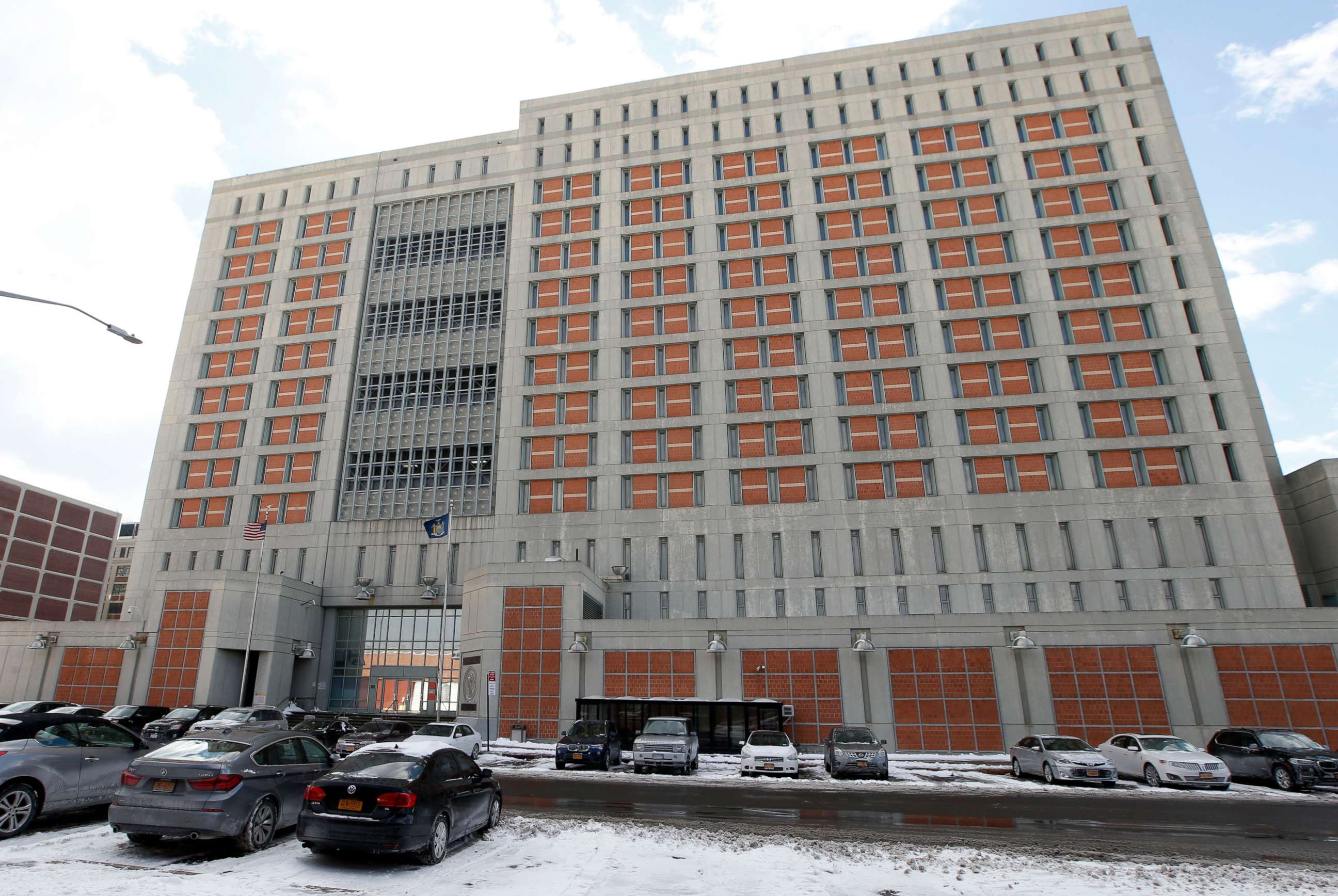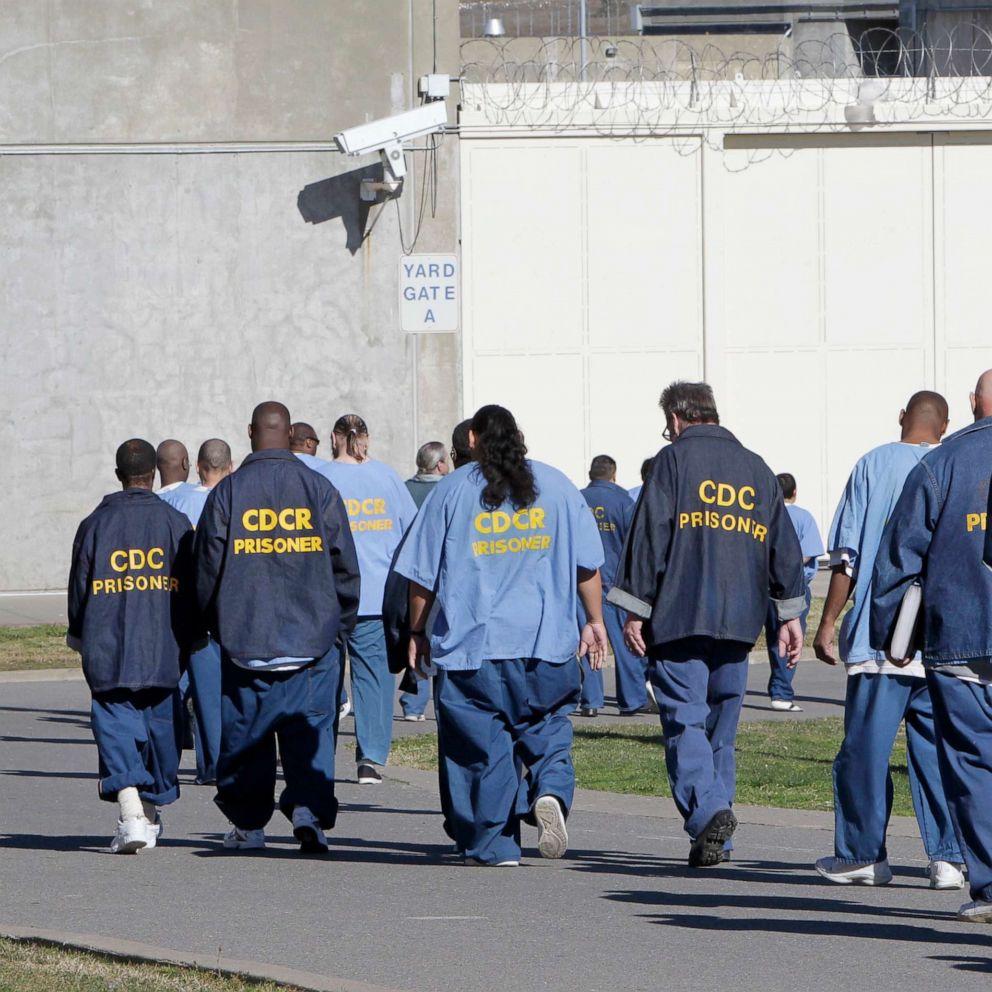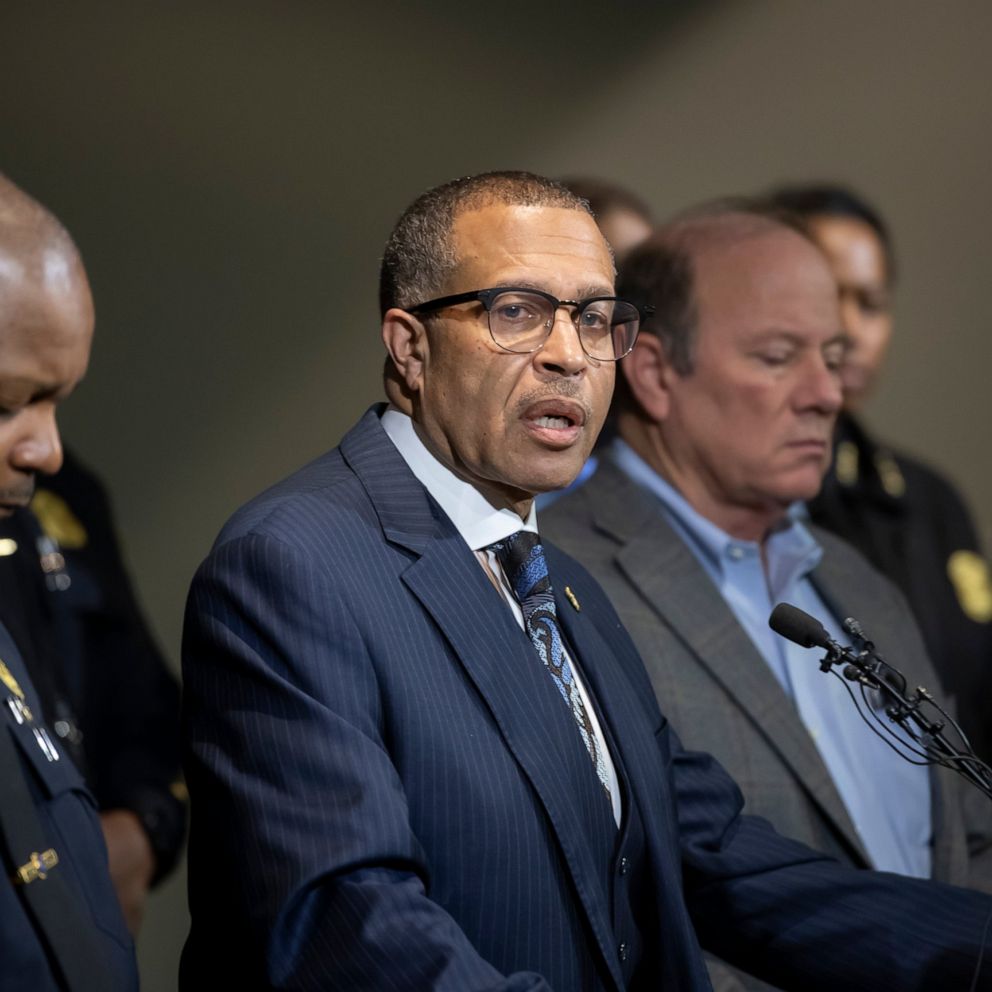'We need help': Inmates describe prison system unprepared for coronavirus
Experts discuss the threats coronavirus outbreaks in prison pose for the country
Some inmates at Alabama state prison facilities asking for help amid the novel coronavirus pandemic highlighted what they described as broader threats inside the U.S. prison system.
"It’s fixin’ to be a mass grave site," one prisoner said in exclusive footage obtained by ABC News.
The video, aired on ABC's "This Week" Sunday, showed inmates who say they lack access to adequate handwashing and displayed a level of overcrowding that precluded their ability to practice social distancing.
"My thing for the outside world is, help. Help. Help for the overcrowding, help for sanitary purposes, help for a release mechanism. We need to release some of these people, we need help," an Alabama prisoner said.
ABC News reached out to the Alabama Department of Corrections -- they acknowledged that current conditions mean they can't enforce social distancing -- adding that the department is working "to do everything in our power to mitigate the spread of the virus." As of Friday, no inmate in Alabama had tested positive for COVID-19, and "only two ADOC staff members have been confirmed positive."
Tune into ABC at 1 p.m. ET and ABC News Live at 4 p.m. ET every weekday for special coverage of the novel coronavirus with the full ABC News team, including the latest news, context and analysis.
The conditions in prisons amid the coronavirus pandemic are not just threatening those incarcerated, but also presenting a broader public health crisis, according to experts.
"This is going to drive the entire epidemic curve for this nation up, just when we’re trying to flatten it," Dr. Homer Venters, an epidemiologist and former chief medical officer of the NYC Correctional Health Services told ABC News Chief Anchor George Stephanopoulos on Sunday.
The virus is spreading rapidly throughout the nation’s prisons.
In the New York City correctional system, there is an emerging trend where the number of positive cases among city corrections staff has outpaced the number of infected inmates. As of Friday, there were 273 staff members who tested positive for COVID-19 compared to 239 inmates, according to the New York City Department of Correction. And those numbers do not include individuals who may have contracted the coronavirus while in custody, but have since been released.

At the Cook County Jail in Chicago, one of the largest single-site jails in the country, the number of cases continue to spike. Its first two detainees tested positive on March 23 and by April 3, 210 detainees tested positive, according to the sheriff’s office.
"There is no such thing as social distancing inside prisons," said Topeka K. Sam, a prison reform activist advocating for the release of elderly, nonviolent prisoners due to the pandemic.
After serving three years in federal prison for a nonviolent drug offense, Sam now serves as a senior adviser for New Yorkers United for Justice, a statewide campaign she helped co-found to advocate for criminal justice reform.
Sam says the conditions are no different from what she experienced when she was incarcerated in both federal prison and county jails.
"There’s no way to properly be 6 feet apart, there is no way to properly wash your hands," Sam told Stephanopoulos. "There’s not enough soap. They can’t use hand sanitizer because alcohol products that are in them and they are considered contraband."
Sam’s perspective is a stark departure from the position of some sheriffs, like Bristol County Sheriff Thomas Hogdson, who believes prisoners are safer behind bars.
"I can’t think of anything that would be more distancing than have the prisoners in the jails, protecting the people on the outside from adding more carriers and more exposure," the sheriff from Massachusetts said on "This Week."
"It’s all about the control you have in your prisons," Hogdson said Sunday. "We have the protocols in place, we have no COVID-19 people."
On Wednesday, a health care worker who treated inmates and detainees in a U.S. Immigration and Customs Enforcement facility and Women’s Center run by the Bristol County Sheriff tested positive for COVID-19, according to a news release from the sheriff's office. When she confirmed she had developed a fever on March 24, she put on a mask, left the facility and contacted her physician, according to the sheriff's office. She has not returned.
Even if prisoners remain incarcerated, Venters said the way prisons operate the staffs could still send the coronavirus into the communities.
"The danger here is that we’re not only really going to see the explosion of cases among people who are detained," Venters said. "These places are almost perfectly designed and run in a way to promote the spread of this virus throughout these institutions."
There are nearly 2.3 million people incarcerated in federal, state and local prisons, jails and other correctional facilities across the country, according to a report from the Prison Policy Initiative. Additionally, U.S. Immigration and Customs Enforcement is currently detaining about 38,000 immigrant detainees -- some of whom are seeking asylum -- at many of these institutions.
Sheriffs nationwide have attempted to mitigate the risks in a variety of ways, including instituting visitor restrictions, enhanced precautions for staff and attempts to enforce social distancing.
And, while criteria vary by state, there are currently no nationwide guidelines governing which inmates are eligible for early release or home confinement. Some state institutions and federal prisons have started releasing certain prisoners in vulnerable populations in an effort to contain the pandemic as the disease spreads through the system.
At a White House Coronavirus Task Force briefing on Thursday, President Donald Trump expressed concern about these releases, saying that some prisoners "are getting out that are very serious criminals, in some states."

Late Friday, Attorney General William Barr called to accelerate the release of vulnerable and at-risk inmates at particularly hard-hit facilities in Ohio, Connecticut and Louisiana, pushing for "transfers to home confinement of all appropriate inmates ... where COVID-19 is materially affecting operations," in a memo to the director of the Bureau of Prisons.
Among the prisons Barr prioritized was the Federal Correctional Institution's Oakdale, Louisiana, facility, where five inmates have died of the coronavirus.
Barr was clear his recommendations on expanding prisoner release would not come without restrictions.
"The last thing our massively over-burdened police forces need right now is the indiscriminate release of thousands of prisoners onto the streets without any verification that those prisoners will follow the laws when they are released," Barr said in the memo.
ABC News’ Luke Barr and Sasha Pezenik contributed to this report.
What to know about coronavirus:
- How it started and how to protect yourself: coronavirus explained
- What to do if you have symptoms: coronavirus symptoms
- Tracking the spread in the US and Worldwide: coronavirus map







